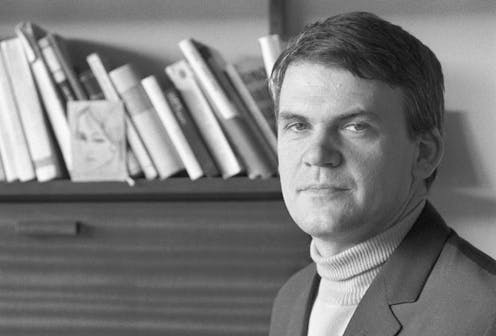Milan Kundera's 'remarkable' work explored oppression, inhumanity – and the absurdity of being human
- Written by Jen Webb, Dean, Graduate Research, University of Canberra

Milan Kundera, that remarkable novelist, essayist, poet, philosopher and political critic, has died at the age of 94. It feels too soon, perhaps because in everything he wrote, he opened up new ways of thinking, writing and reading. In his literary presence, the world seemed tuned to a higher frequency.
Kundera was born with immaculate timing, on April 1 (1929): April Fool’s Day. From the start, he was exposed to, and immersed in, the absurdity of human culture. He grew up in Nazi-occupied Czechoslovakia, then lived under Stalinist rule, where he was an active member of the Communist Party.
I have been reading him, quoting him and teaching from his writings for decades, after bumping into his work in 1988. I was living then on an isolated sheep station in the Western Australian outback, a world of bleak beauty.

















